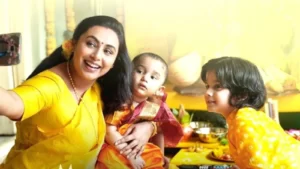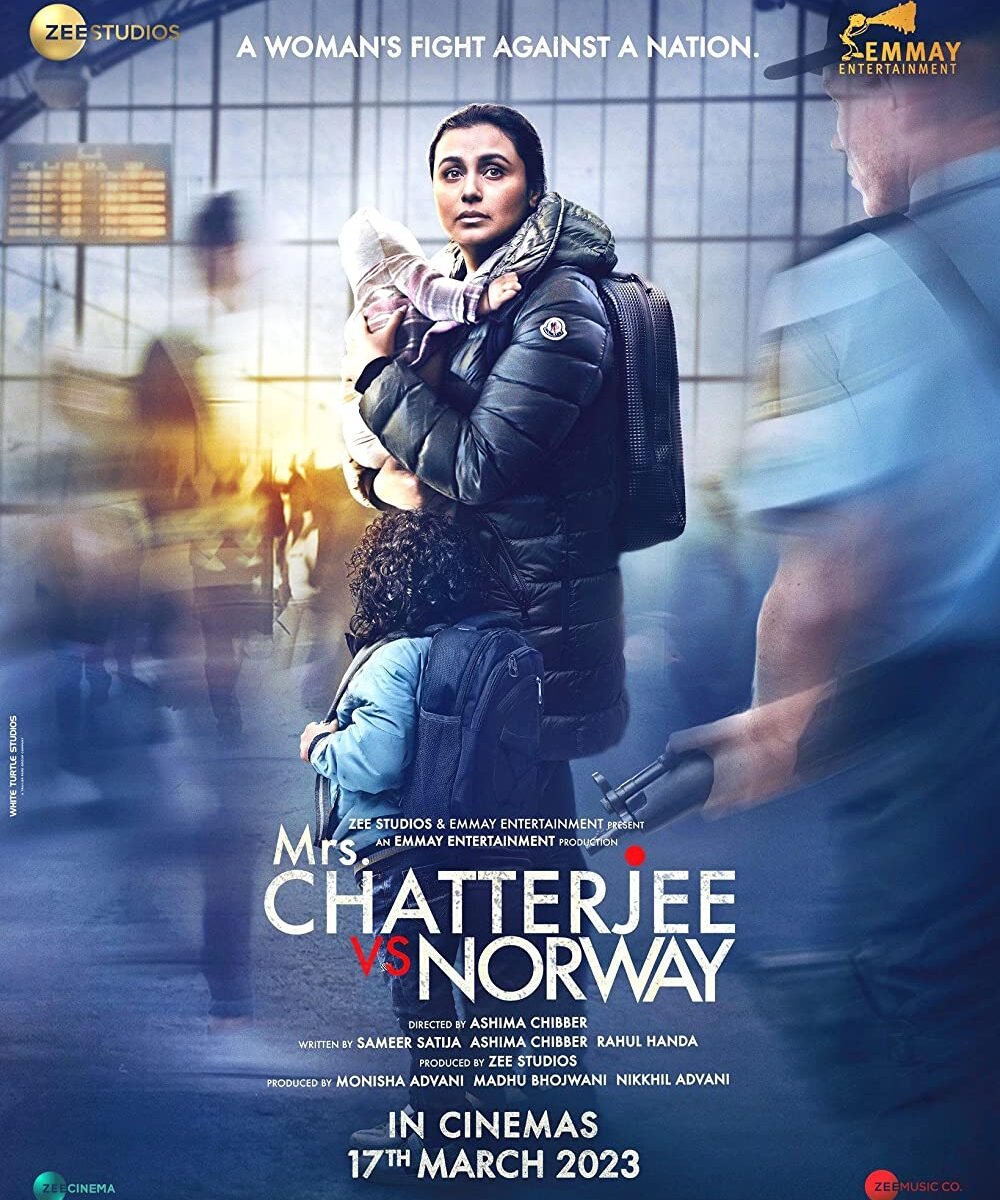Mrs Chatterjee Vs Norway – Controversy
The Norwegian Ambassador has provided a very solemn attempt to correct the record in response to the Rani Mukherjee-starring movie Mrs Chatterjee vs Norway. Nonetheless, I humbly ask your apologies; Mrs Chatterjee Vs Norway does not constitute a comprehensive criticism of your nation. It focuses on a particular real-life incident in which the Norwegian child protection services kidnapped an Indian immigrant’s infants for insignificant reasons.
The narrative then continues to describe how, thanks to the Indian foreign minister’s involvement and an Indian lawyer’s efforts, the children were returned to their mother and are now being raised by her in a joyful and normal manner. This is a case study of how the best of intentions may go awry if handed to a bureaucracy with disproportionate powers uncontrolled by other organs of the state.

That the India case study illustrates what is wrong with the Norwegian child protection services, in particular, and western child protection services, in general, is testified to by the fact that numerous deprived parents of Indian and east European origins in all parts of western Europe and, indeed, in Norway itself, and in the United States, have been turning to the Indian lawyer for help, which she extends pro bono. She was thus named a laureate by the Nordic Human Rights Council.
Affected individuals of Norwegian and other foreign backgrounds have assembled in New Delhi for activities that will take place after the film’s premiere, including a seminar at the IIC today and a dastangoi under the direction of Mahmood Farooqui the next day.
Even though the movie is about a particular situation, it highlights systemic flaws that require immediate correction. The Norwegian Ambassador errs by asserting “factual errors” without providing any supporting evidence. Instead, the statement that the issue “was handled a decade ago in conjunction with the Indian authorities” easily dodges the facts upon which the movie is based.
The Indian authorities only interfered after the issue was raised by an Indian MP (Brinda Karat) and an Indian lawyer, the Ambassador neglects to mention. There is no such action in the past that would indicate this is the Indian foreign office’s regular procedure. The message of the movie is thus equally aimed at Indian and Norwegian authorities.
There is a need for legislation in India that would force the Indian government to intervene with child protection services in the West that frequently remove Indian children on false pretexts due to the rising number of NRIs. The presence of a Norwegian father who was denied a child by a second marriage, despite the fact that his four older adult children from his first wife attested to his redeeming qualities, at the New Delhi events served as a reminder that the issue also involves cases of east European children and their families and, perhaps more frequently, Norwegian children.

The ambassador claims to have “wonderful recollections” of his children’s formative years. “Feeding them with my hands” was one of them. He was fortunate to avoid the observation of the English social worker in Stavanger, Norway, who claimed to know how Indian families treated their children after watching Slumdog Millionaire and described Sagarika, the Indian mother, as “barbarians” who “ran around naked” before the British civilized them.
The Norwegian childcare institutions up to and including the judiciary remained firmly behind the case worker despite ample evidence that she was ill-prepared and unqualified for the delicate responsibilities assigned to her.
It was only intervention at the level of the Indian foreign minister that permitted the children to be returned to the extended family in India. The infants’ reunion with their mother was afterward negotiated by the Indian lawyer through the Indian judicial system. The fact that the children are still living with their mother 10 years later in clear joy and pleasure is evidence that the Indian judiciary triumphed against the Norwegian system.
If Norway rejects the case’s broader implications and refuses to examine how its child protection rules are being put into practice, it will be necessary to emphasize and reiterate these consequences in the interest of both Norwegian parents and immigrant families.
The exaggeration that the movie Mrs Chatterjee Vs Norway will influence Indians to view Norwegians as “cold-blooded rulers” is unhelpful. It would be wise to reflect on the terrible humanitarian repercussions of mistaken faith in the current system.
The ambassador asserts that “neither the Ministry nor the Minister may intervene in a case,” yet in the Sagarika Bhattacharya case, they did just that, to India and Norway’s mutual benefit. The Ambassador acknowledges that “the event was painful,” but calls the movie a “fictional portrayal” although, in reality, it is based on the mother who went through the horrible experience and wrote an autobiography.
Are you excited to watch Mrs Chatterjee Vs Norway? Comment down below
Also, see
Why Does India Has So Many Beggars?
Follow us on kooApp – Here




